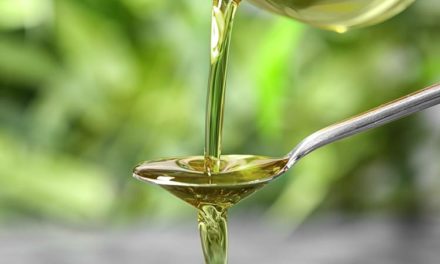Although the CBD market is growing rapidly, there are no unified regulations in place for safety, purity, or optimal dosage. We’ve decided to help you with finding trustworthy CBD products. We’ll give you clear and concise instructions on how to buy CBD for sleep, pain, anxiety or other ailments and have no regrets about the purchase.
What to consider before the purchase
There are two factors to pay attention to before investing in CBD oil: CBD/THC ratio, where hemp plant was grown, the way CBD oil is produced, and third-party lab testing.
CBD/THC ratio
Both THC and CBD have the exact same molecular structure but are different in the way their atoms are arranged. CBD (cannabidiol) is the star player in all hemp products. It is not psychoactive and is shown to help with anxiety, depression, and all kinds of seizures. THC (tetrahydrocannabinol) is responsible for the notorious “high” effect if used in large amounts. Cannabis products containing over 0.2% (Europe) and 0.3% (USA) THC are considered illegal.
Clean soil
The hemp plant can grow and thrive in contaminated soil while also cleaning the soil it grows in. Although it is great for the soil, the plant itself absorbs harmful chemicals like radon, chromated copper arsenate, asbestos, pesticides, petroleum products, lead, and creosote.
Via the process called phytoremediation, the roots of the hemp plant dig deep into toxic soil and can absorb harmful chemicals together with the beneficial nutrients that might remain. Usually, the polluting elements are removed from the soil and stored in the hemp plant (particularly in the stems, leaves, and stalk). That is why it is of crucial importance to commit to sustainable farming practices and grow hemp on organic farms.
How CBD oil is produced
Unfortunately, there aren’t any regulations in the CBD industry that control the manufacturing process of oils. It gives brands the freedom to use cheap extraction methods, which can harm the oil quality. For example, they use toxic solvents like propane, hexane, pentane and butane.
We suggest researching the vendor’s production methods and choose CBD processed through supercritical CO2 extraction or ethanol.
Superficial CO2 extraction involves the usage of carbon dioxide under high pressure in a cold environment. This method requires expensive equipment, a more complex refinement process, as well as production expertise. However, it ensures that CBD oil maintains its high quality and purity all through the process.
Ethanol is used to remove all the residues and toxins from the base hemp plant. The method of extraction is considered to yield the greatest amount of cannabinoids among the different refinement processes.
Third-party lab testing
It’s a must for the best CBD gummies, oil tinctures, capsules or any other CBD enriched products and reliable CBD brands to provide third-party lab results to their consumers. Independent labs exist to ensure that inside CBD oil bottles is exactly what the package says: with a high level of CBD, no impurities that can be harmful to consumers, and low THC.
Other factors to bear in mind
Carrier Oil
The most commonly used carrier oils are MCT Oil, Hemp Oil, and Olive Oil. Each of them has some distinct properties that it imparts to the final product.
- MCT Oil (medium-chain triglyceride) is loaded with fatty acids that have medium-length chains called triglycerides. Due to their short chain length, MCTs are easily digested. This oil is most commonly obtained from coconut oil (more than 50% of the fat in coconut oil comes from MCTs). Also, MCT Oil offers a light and sweet flavour to the final product.
- Hemp Oil contains omega-3 and omega-6 fatty acids in a ratio of 3:1, which is considered to be the ideal ratio. It is also a great source of gamma-linolenic acid (GLA). The oil adds to the potency of the CBD oil, it would also contribute its weedy note to the product.
- Olive oil is rich in monounsaturated fats and would add on the properties of the CBD oil making it smell a bit strong and intense.
CBD terminologies
It is important to understand the difference between CBD isolate, full-spectrum, and broad-spectrum.
- CBD isolate is the purest CBD form that has been extracted from industrial hemp and then isolated from all the other compounds and cannabinoids present in the plant (including THC). What you get is a 99 % pure CBD extract.
- Full-spectrum CBD contains all-natural cannabinoids and all compounds found in the hemp plant, including THC, fatty acids, vitamins, minerals, terpenes, and flavonoids.
- Broad-spectrum CBD is the full-spectrum CBD minus THC. Broad-spectrum CBD is the best option you can choose if you want to take advantage of all the original compounds in the hemp plant without any effects of THC.















